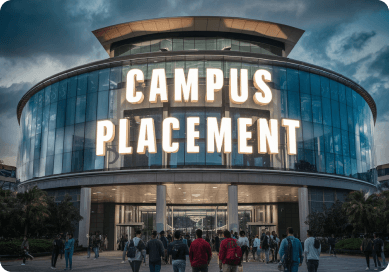Enter OTP



Nanterre, France

Nanterre, France

Cost Of Living

Undergraduate Fees International Students

Post Graduate Fees International Students
Emmanuel Macron, the 25th President of France since May 2017, studied philosophy at Nanterre. His academic grounding i... View More
Emmanuel Macron, the 25th President of France since May 2017, studied philosophy at Nanterre. His academic grounding in politics and ethics informed the founding of his centrist movement, La République En Marche!, in 2016. Macron built his career in public service as Inspector of Finances and deputy secretary at the Élysée before securing the presidency. During his tenure, he’s navigated challenges like the Yellow Vest protests, pension reform, and France’s role in European geopolitics. His Nanterre education helped shape his modernizing, pro-European vision—anchored in philosophical inquiry and public administration View Less
Nicolas Sarkozy studied law at Nanterre before rising politically through local and then national roles. He served as Pr... View More
Nicolas Sarkozy studied law at Nanterre before rising politically through local and then national roles. He served as President of France (2007–2012) and holds the unique title of ex-officio Co-Prince of Andorra. Sarkozy’s presidency prioritized economic reform, immigration control, and tighter EU leadership after the global financial crisis. His journey from Nanterre to the Élysée underscores how the university’s law faculty shapes future French policymakers. Despite controversies, his tenure marked assertive global diplomacy, domestic reforms, and hard-fought political campaigns that reshaped France’s conservative agenda View Less
Christine Lagarde earned law and English degrees at Nanterre before becoming France’s Minister of Finance. She then le... View More
Christine Lagarde earned law and English degrees at Nanterre before becoming France’s Minister of Finance. She then led the IMF from 2011 to 2019 and has served as President of the European Central Bank since 2019. Known for her global economic influence, she steered critical financial decisions—stabilizing Eurozone debt and guiding monetary policy. Lagarde’s Nanterre education equipped her with multilingual, legal, and analytical skills crucial for international diplomacy. Her roles reflect how the university fosters leaders who blend law, economic strategy, and strong regulatory vision on the global stage. View Less
Dominique Strauss‑Kahn studied economics and law at Nanterre, later entering academia and public service. He served as... View More
Dominique Strauss‑Kahn studied economics and law at Nanterre, later entering academia and public service. He served as IMF Managing Director (2007–2011) and held roles including French Minister of Economy and Finance. Under his leadership, the Fund tackled global financial crises and advanced economic reform initiatives. His tenure at Nanterre helped sharpen his analytical rigor and policy acumen. Despite personal controversies post-IMF, his contributions to financial architecture and economic stabilization efforts define a significant chapter of early 21st-century global finance. View Less
World-famous DJ and producer David Guetta pursued academic coursework at Nanterre before launching his musical career.... View More
World-famous DJ and producer David Guetta pursued academic coursework at Nanterre before launching his musical career. He rose to global prominence in the 2000s with chart-topping hits like “Titanium” and “When Love Takes Over.” Guetta’s blend of electronic sounds and pop established him as a pioneer in the EDM scene. His time at Nanterre offered creative context and intellectual diversity that likely influenced his global artistic vision. Across decades, Guetta has sold out festivals, shaped musical trends, and earned multiple awards—proving Nanterre’s capacity to foster cultural trailblazers. View Less
Vincent Bolloré studied at Nanterre before taking charge of the family business. As chairman and CEO of the Bolloré Gr... View More
Vincent Bolloré studied at Nanterre before taking charge of the family business. As chairman and CEO of the Bolloré Group, he transformed it into a global conglomerate spanning logistics, media, and energy. His aggressive acquisition strategy, especially of media assets like Vivendi and Canal+ in 2021‑23, stirred both acclaim and controversy. Bolloré’s Nanterre background provided a strong base in economics and law, enabling his later corporate expansion. His leadership mirrors the university’s emphasis on entrepreneurial drive and strategic business acumen, even as his tactics often spark public debate. View Less
Dubbed “Dany le Rouge,” Daniel Cohn‑Bendit became a 1968 student protest leader while studying at Nanterre. He l... View More
Dubbed “Dany le Rouge,” Daniel Cohn‑Bendit became a 1968 student protest leader while studying at Nanterre. He later represented the Greens in the European Parliament (1994–2014). A fiery advocate for civil liberties and European federalism, he fused activism with politics across generations. His Nanterre years—full of rooftop occupations and campus upheaval—shaped his combative spirit. He carried that into his political persona: outspoken, progressive, and often controversial. From barricades to Brussels, Cohn‑Bendit epitomizes Nanterre’s rebellious, reformist legacy View Less
Dominique de Villepin studied law at Nanterre, eventually becoming France’s Prime Minister (2005–2007) under Jacques... View More
Dominique de Villepin studied law at Nanterre, eventually becoming France’s Prime Minister (2005–2007) under Jacques Chirac. He’s best known for opposing the 2003 Iraq invasion at the UN, showcasing diplomatic skill rooted in legal training. De Villepin later deployed domestic reforms in civil service and security. His Nanterre education gave him grounding in international law and statecraft, which he applied both at home and abroad. A polished orator and strategist, de Villepin exemplifies how the university prepares students for high-stakes global and domestic leadership. View Less
Dominique Tchimbakala earned her history and political science degrees at Nanterre before emerging as a journalist and a... View More
Dominique Tchimbakala earned her history and political science degrees at Nanterre before emerging as a journalist and anchor at France 2, France 5, BFMTV, and TV5Monde. Born in France but raised partly in Congo, she represents a global media presence in French-speaking Africa. Her Nanterre education shaped her analytical insight and cultural awareness. Breaking into journalism, she’s been recognized for her authoritative news delivery and international reporting on politics and society. Tchimbakala exemplifies the university’s ability to nurture communicators fluent in international dialogue and media excellence View Less
Otmar Seul, professor of legal German at Nanterre (1989–2011), co-founded the pioneering Franco-German law double-degr... View More
Otmar Seul, professor of legal German at Nanterre (1989–2011), co-founded the pioneering Franco-German law double-degree program with Potsdam (1994–95). A historian and scholar, he emphasized industrial democracy’s cross-border evolution, linking social law and corporate reform. His work shaped curriculum and research culture at Nanterre, fostering bilingual, interdisciplinary legal education. His legacy includes publications on self-management and labor law across Europe and contributions to Franco-German academic integration. Seul symbolizes the innovative teaching and internationalism the university stands for. View Less
Paris West University Nanterre La Défense boasts cutting-edge infrastructure designed for modern learning. Its sprawling campus includes high-tech lecture halls, interdisciplinary research hubs, and a library equipped with digital workspaces like the Pixel lab. Students enjoy top-tier sports facilities—an Olympic-size pool, stadium, and a full sports complex offering everything from judo to archery. The Max Weber Centre anchors humanities with seminar rooms and faculty offices. Campus-wide digital upgrades support virtual classrooms and collaboration tools. Located in La Défense, the university blends academic spaces with professional energy, connecting classrooms to real-world opportunities.
Paris West University Nanterre La Défense offers a vibrant student life fueled by diverse clubs, campus events, and cultural exchanges. Undergrads and grads find their tribe—from theater and dance troupes to environmental, political, and international associations. Sports enthusiasts train in facilities ranging from the Olympic pool to climbing walls and judo mats, while casual teams keep the energy going. Regular concerts, art exhibits, and debates bring creative and intellectual curiosity alive. With its base in La Défense, students bridge academics with city life—accessing internships, cafés, and coworking hubs. It’s not just education—it’s connection, exploration, and building lifelong bonds.


Paris West University Nanterre La Défense’s career services are built to give students real-world traction: From day one, the Career Centre (Service des Stages et de l'Insertion Professionnelle) offers one-on-one counselling to help students clarify goals, craft strong CVs and cover letters, and lean into their strengths.They run workshops and seminars on job-search skills—resume writing, interview prep, networking strategies—and host job fairs and recruitment events to bridge connections with employers. A dedicated internship database and platforms like JobTeaser give students direct access to a wide range of internship, alternance, and job listings across sectors. Core degree tracks include mandatory internships, and the Career Centre supports students through every step—finding placements, managing documentation, preparing reports, and handling supervisor coordination. Professionalization events—forums, speed-recruiting sessions, alumni panels, and competitions like the BNP Challenge—help students build soft skills, test ideas, and get real-world feedback.
The below information is required while
completing the university application :
High school diploma (Baccalauréat or equivalent)
You must submit a certified copy of your final secondary school diploma—equivalent to the French Baccalauréat. If the original isn’t in French, it must be translated by a certified translator for the application process
Official academic transcripts
Provide full transcripts from your high school showing all coursework and grades. These documents are assessed to verify eligibility and academic readiness for undergraduate study
Proof of French language proficiency (minimum B2 level)
For French?taught bachelor’s programs, you need a B2-level certificate such as DELF or TCF. This is a strict admission requirement—without it, your application will not be considered
Passport copy (and visa documents if applicable)
A valid passport copy is required. Non?EU/EEA students must provide study visa documentation or proof of their Campus France pre?application as part of the admission file
Curriculum vitae (CV) and motivation letter
A CV outlines your academic and extracurricular background. A motivation or purpose letter explains why you want to study at Nanterre, your goals, and fit with the chosen program—often required in Parcoursup or Études en France procedures
Letters of recommendation or referee statements (if required)
Some programs request one or two academic or professional reference letters to support your application—especially if there are competitive or selective fields .
Paris West University Nanterre La Defense has strong industry ties, especially through its partnerships with top institutions like Ecole Polytechnique and ESSEC. Its business and law programs open doors to leading firms in Paris and beyond. The university hosts regular recruitment fairs, networking events, and career workshops to connect students with employers. Its location in the La Défense business district gives students direct access to major corporations and internship opportunities. Specialized programs like Esprit d’entreprendre support student-led ventures and startups. With its practical focus and strong alumni network, the campus is a launchpad for careers in public service, corporate sectors, and creative industries.



Paris West University Nanterre La Defense has shaped presidents like Emmanuel Macron and Nicolas Sarkozy, and global leaders like Christine Lagarde and Strauss-Kahn. It pioneered bilingual double-degree programs that inspired universities across France. With 40+ research labs and CNRS collaborations, its academic output is nationally ranked and globally relevant. It earned the HR Excellence in Research label and leads social innovation through projects like UNISSON. Its Franco-German and global academic ties deepen its international influence. From policy to culture, its impact echoes far beyond the campus.


For the 2024–25 cycle, the French Ministry of Europe and Foreign Affairs selected Nanterre to host recipients of the prestigious Eiffel Excellence Scholarships. These grants support high-achieving international Master’s and doctoral candidates in law, economics, political science, and engineering. By hosting this program, Nanterre enhanced its global visibility and intensified its capacity to attract talented foreign students and future leaders in public and private sectors. The scholarship aligns with the university’s internationalization strategy and underscores its reputation for academic excellence. It also contributes to a multicultural campus environment and global academic outreach
According to Research.com’s 2024 metrics, Nanterre’s researchers rank #22–23 nationally in disciplines like Economics & Finance, Electronics, and Mechanical Engineering, with four scholars in top-tier global rankings. These researchers produced over 650 publications and more than 15,400 citations, demonstrating robust citation indices (D-indexes of 34–48). This performance places the university among France’s most competitive non‑STEM-focused institutions, showcasing its research excellence and ability to generate high-impact scholarship across diverse fields
Nanterre earned the European HR Excellence in Research award and the national SAPS (“Science Avec et Pour la Société”) label for its commitment to open science, ethics, and societal engagement. Through its Research Policy, the university adheres to FAIR principles, promotes data sharing, and implements participatory research that connects academia and civil society. The SAPS label reflects structured science dissemination efforts like public conferences and school outreach. These accolades confirm Nanterre’s leadership in research integrity and its mission to align scholarly work with societal priorities and ethical standards
Through the France 2030 Accelerations program, Nanterre secured €14 million to launch UNISSON (“Université de l’Innovation Sociale et Solidaire de Nanterre”). This multi‑year initiative re‑imagines campus life, student welfare, and participatory governance. It emphasizes social innovation, solidarity, and inclusive research structures—integrating student feedback into project design. UNISSON offers grants, training, and interdisciplinary experimentation, reinforcing the university’s role as a living lab. It shows Nanterre’s transition from knowledge transfer to transformative action, making the campus not just a learning site but a testing ground for new social models
In 2021, Nanterre’s library unveiled “Pixel,” a cutting-edge digital workspace aimed at supporting student learning and collaboration. Funded through university and public grants, Pixel offers interactive tools, video‑editing booths, group study areas, and digital training modules. It was built to meet the needs of modern learners—digital natives who benefit from blended learning and co‑creation environments. The space also hosts workshops on digital research methods, data ethics, and public engagement. Pixel reflects the university’s investment in digital transformation and its strategy to align academic resources with evolving technology and student practices.
On October 1, 2018, Nanterre launched the École Universitaire de Recherche (EUR) ArTeC, part of a national initiative to consolidate top-tier research and doctoral education. ArTeC brings together humanities and digital technologies, fostering critical inquiry into arts, cultures, and civic values through cross-disciplinary doctoral training. Supported by national funding, it elevates doctoral excellence via rigorous mentoring, international exchanges, and innovative research frameworks. As a key component in the French higher education landscape, EUR ArTeC has enhanced Nanterre’s visibility in European research networks and amplified its capacity to attract and train high-level doctorate candidates
In 2018, Nanterre joined the Condorcet Campus initiative—an alliance of universities, Grandes Écoles, CNRS, and cultural institutions aimed at building a northern Paris research and academic hub. The project, backed by €110 million campus-plan funding by 2014, included new facilities in Aubervilliers and Porte de la Chapelle. Nanterre’s inclusion highlights its commitment to multi-institutional research clustering, enabling shared libraries, public outreach, and transdisciplinary scholarship. It also positions the university as a key stakeholder in regional academic transformation, integrating art, humanities, law, and social sciences within a broader networked campus
In 2016, the university inaugurated the Maison Max Weber, a cutting‑edge centre for humanities and social sciences. This building features a state‑of‑the‑art amphitheater, multiple seminar rooms, and 124 offices dedicated to teacher‑researchers, designed to foster collaboration and community. The space was conceived as an intellectual hub where interdisciplinary dialogue thrives—housing philosophy, sociology, history, cultural studies—and aimed to improve the work environment for faculty and promote innovative teaching methods. It stands as a milestone in campus development, signaling the university’s commitment to research-led education and enhancing academic infrastructure
Starting in 2004, Nanterre spearheaded the Nanterre Network—Franco‑German Summer and Winter universities—in Central/Eastern Europe, the Balkans, and the Mediterranean. Backed by the DFH/UFA, the Franco‑German Youth Service, and the French Ministry, it brought together students and faculty for intensive academic and cultural exchange. These programs tackled issues like EU enlargement, public policy, and legal pluralism. By 2013–15, they expanded globally to include Maghreb and Latin American partners. Through this initiative, Nanterre institutionalized internationalization, fostering collaborative curricula and strengthening Europe‑wide academic networks.
Founded in 1967, the Laboratoire d’ethnologie et de sociologie comparative (LESC) became a CNRS-affiliated mixed research unit by 1968. As a pioneer in French anthropology and comparative sociology, LESC established methodologies now standard in ethnographic and social research. It offered one of the first interdisciplinary platforms combining cultural study, sociology, and fieldwork, under scholars like Eric de Dampierre. Over the years, LESC has produced influential research on urban life, migration, and cultural memory, contributing robustly to academic debates and shaping public policy. That early investment in cross-disciplinary inquiry reflects Nanterre’s pioneering spirit.
Paris West University Nanterre La Defense is a hub for innovation and interdisciplinary research, with over 40 active research units and strong ties to CNRS. It runs advanced doctoral programs and hosts prestigious initiatives like LabEx and EUR schools focused on human and social sciences. The university leads projects like UNISSON, a €14 million effort to reimagine student life and campus innovation. Its commitment to open science and ethics has earned it the HR Excellence in Research label. With strong European and global partnerships, it drives real-world impact through applied research. From social change to digital futures, R&D here is bold, relevant, and deeply connected to society.








Embark on your educational journey with confidence! Our team of admission experts is here to guide you through the process. Book a free session now to receive personalized advice, assistance with applications, and insights into your dream school. Whether you're applying to college, graduate school, or specialized programs, we're here to help you succeed.
